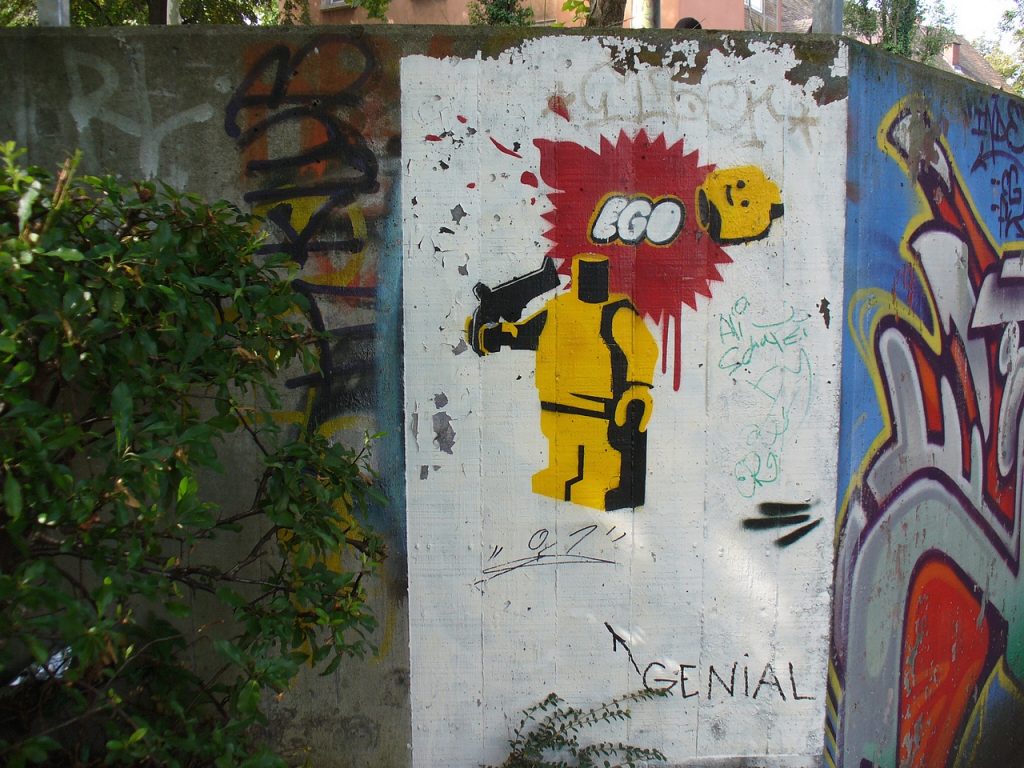Anyone who has interacted with people in some kind of organizational setting—business, military, volunteer—has no doubt encountered at least one person whose ego is the overwhelming (if not sole) motivator of action.

Typically, such people are easily and relatively quickly recognized. Then those around them either depart the setting, become sniveling backers of the ego, or just work around that person.
Often, these ego-driven types are not very pleasant—they tend to be very controlling and unwilling to hear others’ ideas. After all, in their own minds, they are all-knowing, un-erring. They also seem to need others adulation, approval, and recognition far more than the average person.
In large organizations, these people are kept in check structurally—through elections, hierarchy, laws/regulations/rules—or, ironically, by other egos. In smaller, especially volunteer or new, organizations what often ends up happening is after an initial period of excitement, most participants get sick of the ego-driven person and slowly drift away, leaving only a small core of active people. Inevitably, this core group of usually very dedicated, energetic, and sincere activists eventually gets tired. Or other things come up in life, they are, after all, people with day-to-day concerns to deal with. The organization fizzles out, dies. Any number of such organizations in the Diaspora, set up to assist the country in some field or other, have come and gone since the re-independence of Armenia.
These behaviors and symptoms are all easily recognizable signs and can be dealt with early on, if the members of the organization are sophisticated enough to be on the lookout for them and set up systems to prevent the worst outcomes of the presence of big egos.
But what if the “offending” ego is wrapped up in an otherwise extremely nice, even kind, dedicated, energetic, hardworking, productive, and seemingly modest, selfless, and unassuming personality? What if even the “offender” is unaware of her/his need for attention and control? What if this person is accompanied by a few others who share these traits but are willing to be “subservient” to the largest ego? What happens then? The ego will prevent the establishment of constraining rules or systems. Others in the organization will not see the need for them because the group is in its new-born, or honeymoon, period of excitement, activity, and wonderful results while the ego is masked by the other, positive, traits of the person in question. And, that person is even more likely than usual to be unaware of her/his ego’s size and need for control.
No one active in such an organization is likely to notice, much less believe, the corrosive effect of the ego(s) driving the organization. But the results will be the same. People will slowly drift away, and a once vibrant and promising organization will likely follow in the footsteps of countless others that have stumbled and fallen over the over-large egos that are often present in and come to dominate such settings.
If anyone out there has suggestions or solutions to this dilemma, please write.


As complicated as the topic is, allow me to share my thoughts. If and when a group consists of strong and productive members the egotistical ones are usually pushed aside.
It’s better to have 4 strong members than 2 strong ones and 15 bystanders. In my opinion, raising the standards for individuals joining the group will have a positive impact on the issue. People shouldn’t just join because they want to. They should join only if they can and will contribute in significant ways. Strong, productive, down to earth contributors will keep everyone’s egos in check.
Garen I think you’re brilliant. My solution is that the egos are all of us and we are all egos in disguise. But when someone takes it too far by consciously misrepresenting themselves for power and personal social gain, the people in charge currently need to cut the ego off for integrity and sustainability
It needs to be the person in charge who is a member of the majority and holds power not the outlandish ones. Then the outlandish will fill the slots where the ego once took space to spread plagiarized ideas. And peace will be restored :) at least temporarily :)